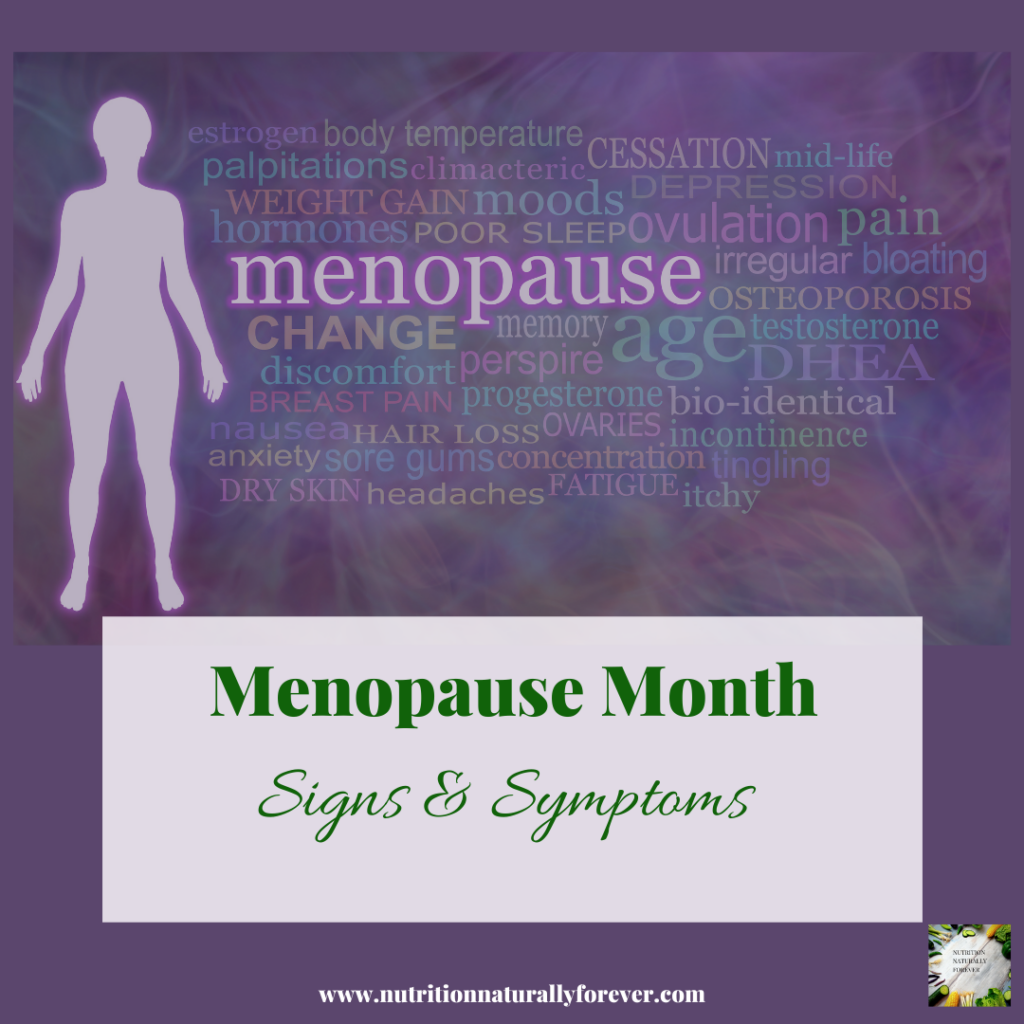
Menopause Month: Signs & Symptoms.
I have had lots of conversations over the past month with women of a certain age asking about the signs & symptoms of menopause, asking my opinion whether they were experiencing peri-menopause and what they can do about it.
I have a certain amount of knowledge and the more I researched further, I realised, I also have a little experience!
What is Menopause?
Menopause is a natural phase of transition in our lives, just like puberty.
Just like puberty, these changes cause us discomfort initially.
I aim to progress through this process as naturally and with as little discomfort as possible and I would like to help you too.
As humans we always fear change, this is also a fear of the unknown. Lack of knowledge and experience leaves us feeling vulnerable and confused. Add to that the distress about the symptoms we are experiencing and this time of our lives can become difficult.
As with everything we go through it helps to find others who are experiencing or have experienced the same. Sharing experiences and knowledge helps us feel connected and more in control, it helps us feel understood.
Menopause isn’t a disease, we will all go through it at some point but it does cause dis-ease and rather than treating the annoying symptoms that can arise during this time I believe we need to take a step back and look at the whole picture.

Improving our overall wellbeing will improve this transition.
Stages of Menopause
Natural menopause has 3 main stages:
- Peri-Menopause
- Menopause
- Post Menopause
The window of transition is between 40 and 58 years of age. Peri-menopause can start at any time after we turn 40 (anything before this is early menopause). As this change can last for a few years (average 4) it makes sense to do what we can to alleviate the most uncomfortable symptoms.
Menopause can also be triggered by surgery, for instance, a hysterectomy, medical treatment such as chemotherapy or radiation treatment or immune disorders.
There are 34 signs and symptoms of menopause that have been identified by doctors, these can include:
- Irregular periods
- Mood swings
- Hot flushes
- Night sweats
- Alcohol sensitivity
- Decreased libido
- Vaginal dryness
- Headaches (or worsening migraines)
- Sore breasts
- Generalised Itching
- Difficulty sleeping
The trouble is these signs and symptoms can also contribute to other issues such as thyroid or fertility amongst many others so you need to discuss any particularly uncomfortable symptoms with a medical professional to ensure there is nothing more sinister going on.
We are born with all of our eggs. This is a pretty cool fact as your Mum has effectively carried her grandchildren inside her as well as you.
You have reached Menopause when you have had 12 months without a period, you are then Post-menopause. Your ovaries are no longer releasing eggs.
Hormones of menopause
During our reproductive years from Puberty to Menopause our hormones ebb and flow.
It is Estrogen and Progesterone that work in harmony with each other to release an egg, create a fertile environment, attach a fertilised egg or release the thickened tissue and start the cycle again.
During our cycle, our mood and symptoms differ depending on which hormone is dominating. These symptoms are impacted by our diet and our environment.
During peri-menopause, this ebb and flow can change into a rollercoaster. The good news is we do have some control…
Controlling Symptoms
Using the Four Pillars of Heath and Wellness, which I teach in my programs, we can make lifestyle changes to prepare our body for the coming changes and improve the symptoms we are experiencing.
Hormonal balance is affected by:
- Stress
- Medication
- Poor sleep hygiene
- Processed foods
- Excess alcohol consumption
- Smoking
By managing these areas of our life and balancing our hormones we can achieve a smoother transition.
Next week…
Next week I will be taking a deeper look at the sex hormones involved in the transition through this time and how you can affect the levels in your body depending on the symptoms you are experiencing.
In the meantime, book a free Wild Well-Being call to discuss your unique menopause journey and make a plan to reclaim your zest for life.
